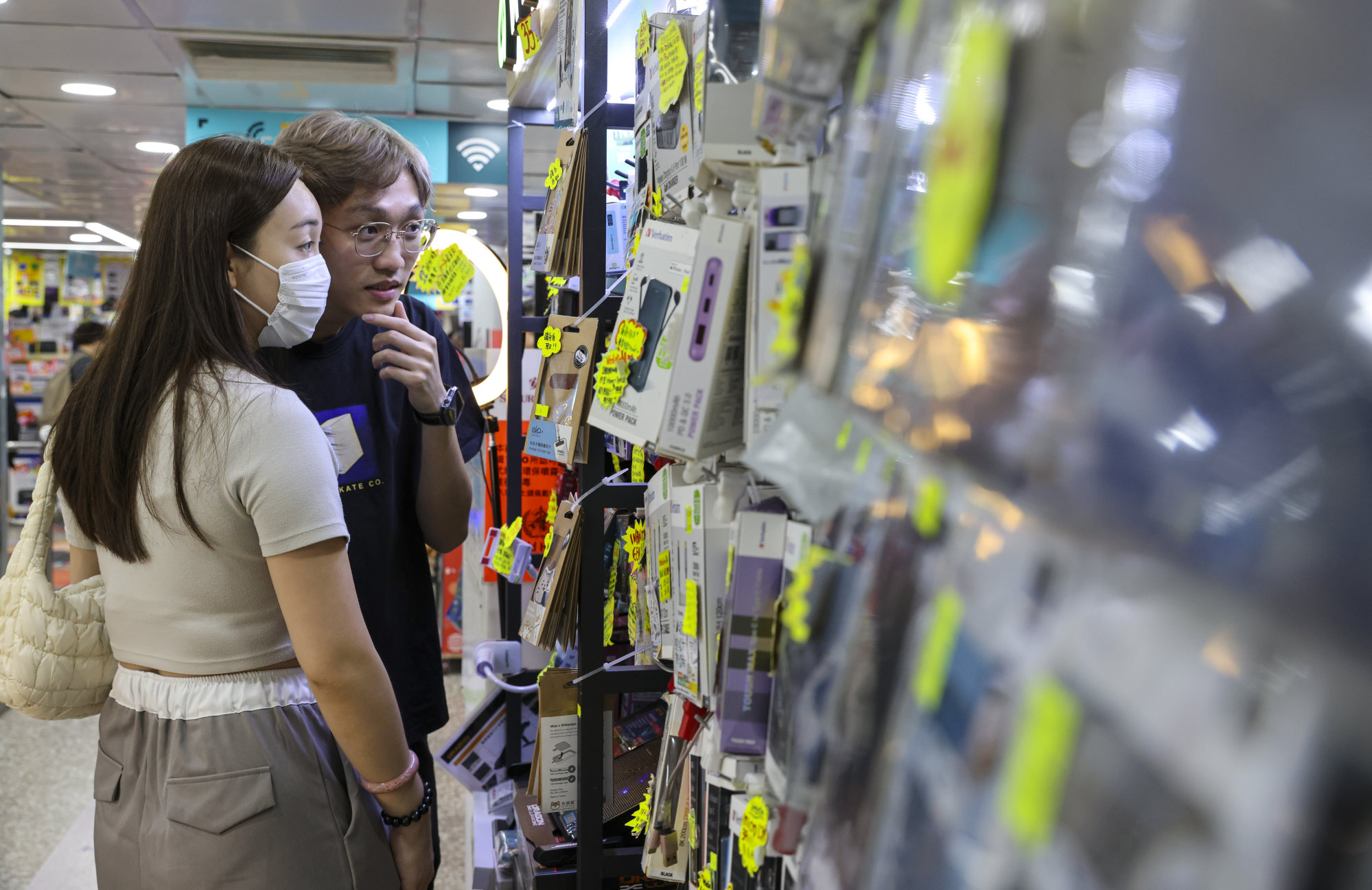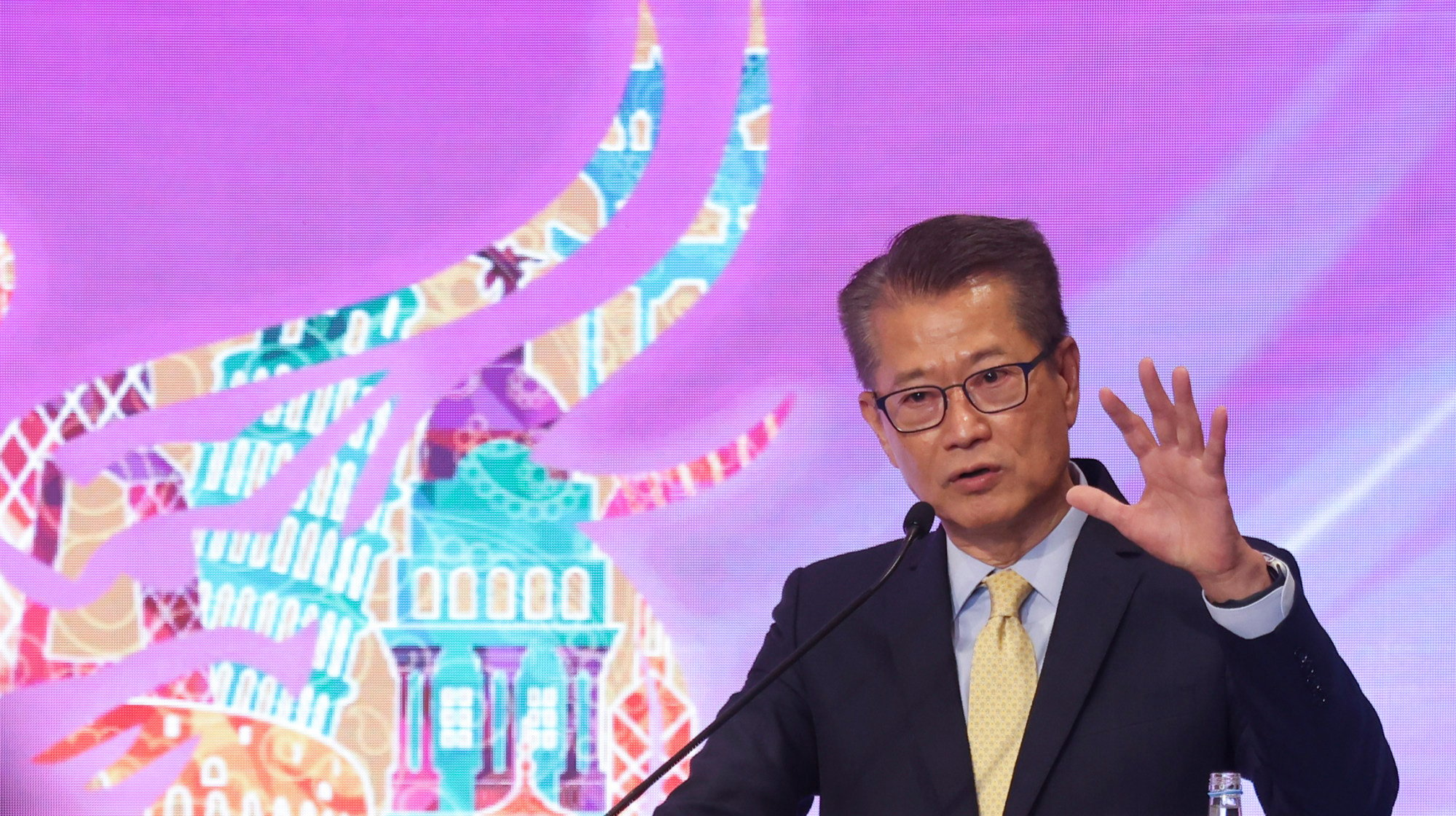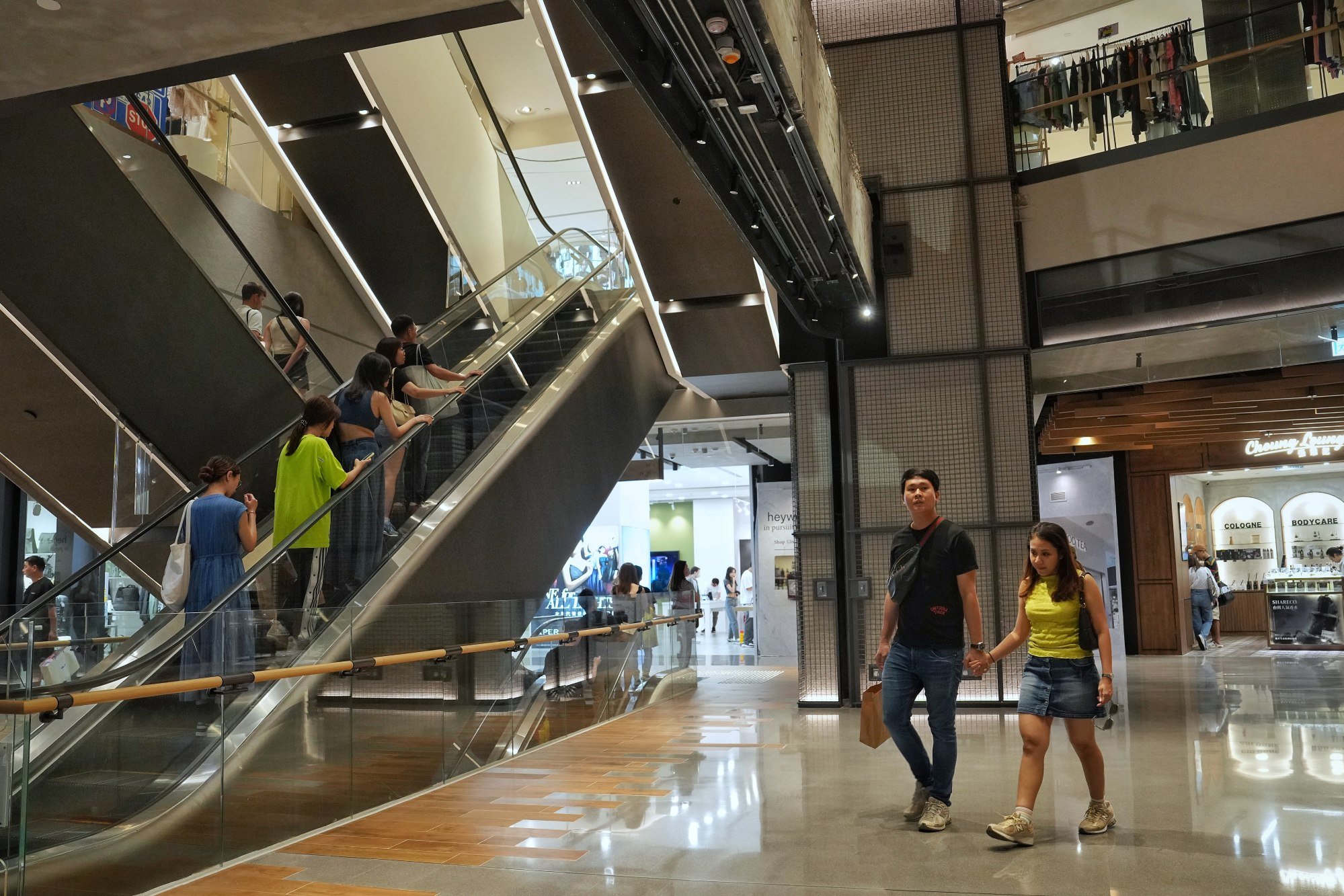[ad_1]
A group of businesses kicked off a night bazaar on Friday in a bid to give Hong Kong’s evening economy a lift by rebranding a computer festival in Sham Shui Po, but vendors said sales had yet to see much of a boost.
Lawmaker Peter Shiu Ka-fai on Friday night said the annual Golden Computer Festival, involving the popular Golden Computer Arcade on Fuk Wa Street and local restaurants, had been rebranded as a night bazaar, with shops opening 90 minutes later than previous editions, until 11.30pm.
Restaurants and vendors were offering discounts on products and food, he said.

“After the pandemic, people got used to going home early and this is not good for the economy. These nighttime events will help it bounce back,” Shiu said after a high-profile rebranding ceremony for the two-day event which ends on Saturday.
He added that the festival was the first since Financial Secretary Paul Chan Mo-po recently floated the idea of night bazaars, believing they would raise competitiveness and attract tourists through innovation, quality services and outdoor experiences as visitors’ habits had changed after the Covid-19 pandemic.
However, merchants in the computer centre said this year’s event was not as well attended as previous ones.
“Actually, it is not any busier than a normal day,” said retail worker Casper Chen, 25.

Chen said he had heard his managers discussing opening later but they decided against it as business had not increased.
Festival worker Luca Au Yuan, 30, said it was not very different to other years.
“There is the opening ceremony and people can get a discount at restaurants, but that’s about it,” he said.
Hong Kong’s June retail sales up 19.6 per cent, boosted by tourism and consumers
Hong Kong’s June retail sales up 19.6 per cent, boosted by tourism and consumers
Local restaurants selling fish balls and rice rolls for between HK$12 and HK$20, a roast duck establishment and a noodle house were among food outlets taking part.
Another retail worker, Liu Ka-wing, 36, said the festival was only worth it for the lucky few who got discount cards.
“Some people will be able to get a monitor or computer for HK$1,” he said. “But for everyone else, the price is the same as always.”

Annie Tse Yau On-yee, chairwoman of the Hong Kong Retail Management Association, said businesses were resistant to the plan as there was a labour shortfall on average of 10 to 20 per cent.
“So far, I have not had a single positive response. We really don’t have the conditions to extend our operating hours. We discussed with members from the catering and retail industries and both sides strongly rejected the idea,” Tse told a radio programme.
“Especially the catering industry, which has said it is very tight on manpower and already working overtime. It is virtually impossible to hire more workers for longer hours.”
We highlight some offers from the Happy Hong Kong Shopping Festival
We highlight some offers from the Happy Hong Kong Shopping Festival
Authorities and malls are in talks to extend business hours to 11pm on weekends as part of a plan to revive a lacklustre nighttime economy, targeting the coming festive season spanning the Mid-Autumn Festival in late September and the “golden week” national holiday in October.
Malls under developer Henderson Land planned to organise evening entertainment programmes and encourage tenants to provide offers, and distribute more than 10,000 vouchers and extra shopping reward points, a spokeswoman said.
“First we need to deal with Hongkongers spending their money up north, which is a very big challenge for us. Some of our businesses are reporting a 20 to 30 per cent drop in sales. At least during the pandemic, Hongkongers spent their money in the city,” she said.
Annual bazaar in Hong Kong reaches pre-Covid heights as shoppers enjoy discounts
Annual bazaar in Hong Kong reaches pre-Covid heights as shoppers enjoy discounts
A survey by Tse’s retail association found tourists spent less in July this year, compared with the same month in 2018.
Tse referenced night bazaars in major mainland cities such as Changsha in Hunan province and Chengdu, which boosted local economies, but noted it was mostly catering businesses that benefited from the nightlife revival.
“Retailers are still feeling the hit, due to the economic slowdown. Citizens have money, but they would rather save it in their bank accounts than spend it,” she said.
[ad_2]
Source link
